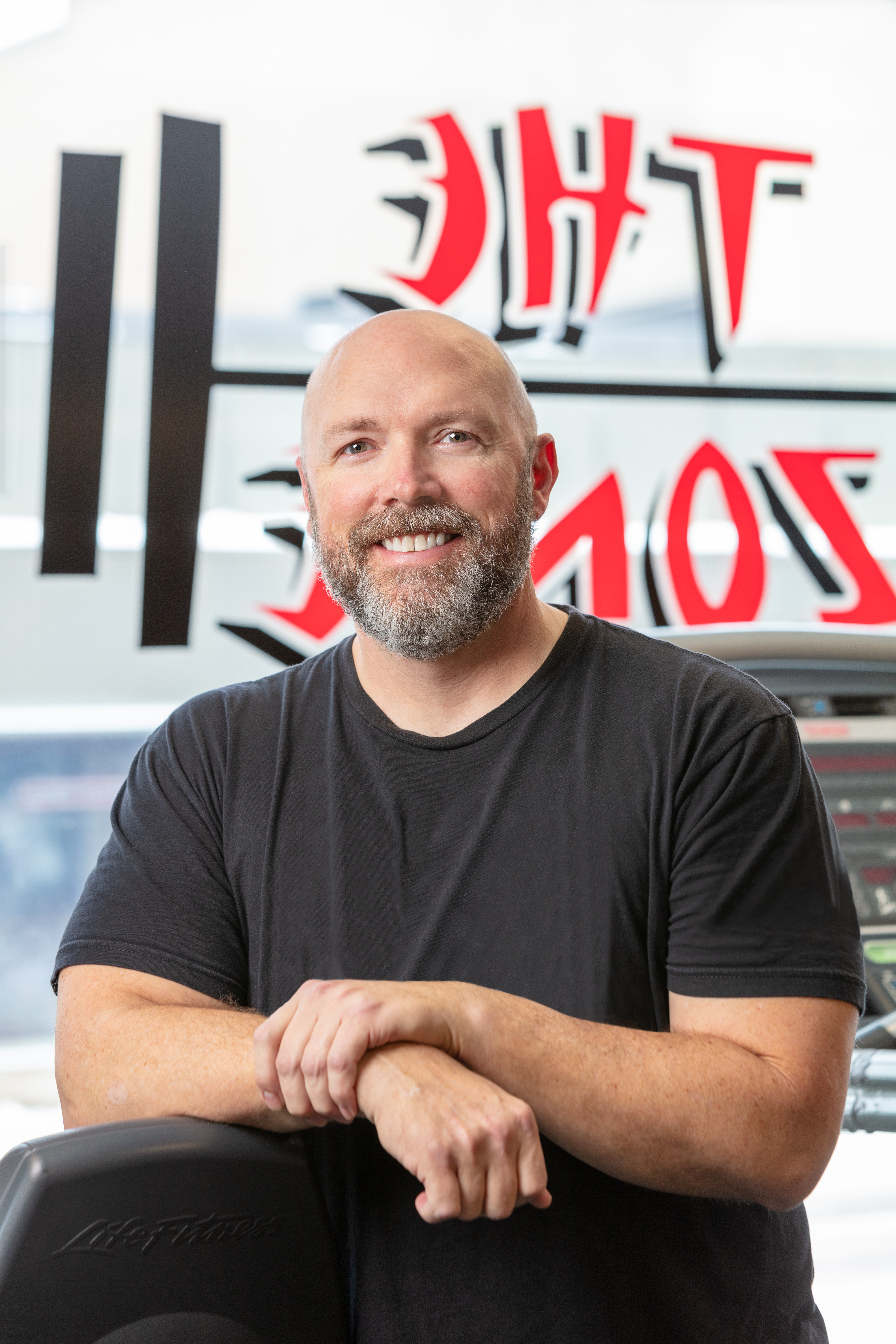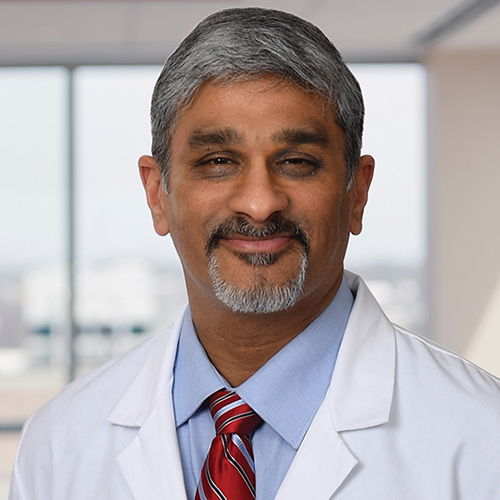Shane Eades wasn’t too worried at first about the lump he discovered on the left side of his jaw in spring 2020.
“Out of the blue, within a week, it blew up from about the size of a pea to a small walnut,” says Eades, now 52. That’s when Eades saw his primary care doctor, who sent him to an ear, nose and throat specialist for a biopsy. Not long after, Eades learned he had non-Hodgkin B cell lymphoma, a type of cancer of the lymphatic system.
The next few days were dark, Eades says. He had recently lost loved ones and friends to cancer, and now he was facing his own diagnosis. “Your mind takes you to worst-case scenarios,” Eades says. But after talking with a friend and cancer survivor, who told Eades to “hit the brakes,” he soon realized he needed information to better understand his diagnosis and his chances of beating lymphoma.

A reassuring consultation
People newly diagnosed with cancer often feel anxious and uncertain, says Ahsan Basha, MD, the oncologist who treated Eades at Riverside Healthcare’s Watseka campus. That’s one reason Riverside aims to provide quick appointments and information for newly diagnosed oncology patients.
“Oftentimes, people are hearing from different people or reading about different experiences on the internet,” Dr. Basha says. “Knowing what the diagnosis is and what to expect can make a huge difference.”
Even when cancer can’t be treated successfully, it can often be managed. Eades had an aggressive form of lymphoma that, if left untreated, can often spread, Dr. Basha says. Fortunately, Eades’ early-stage cancer had not spread to his bone marrow or organs.
“Dr. Basha was very knowledgeable and upfront with us from the very beginning,” Eades says. “He kept me informed. Information was a huge factor in all of this.”
Great care, close to home
Eades received the same advanced lymphoma treatments available at metropolitan centers—but at a location just a five-minute drive from his home. He underwent six rounds of combined chemotherapy (powerful drugs that fight cancer) and immunotherapy (which helps the immune system fight cancer).
Eades, who has since retired from law enforcement, continued to work throughout his treatments. When he began to experience difficult treatment side effects, his nurses were there to help him manage them. “The nurses were absolutely fantastic, knowledgeable and very personable,” Eades says. “They were professional in every way.”
His last treatment was in November 2020. “Fortunately, my final PET scan showed no cancer cells,” he says.
Getting on with life

More than three years later, Eades remains cancer-free. “He’s doing great,” Dr. Basha notes.
“These are the blessings in life that come after you get through the storm,” Eades says. He’s grateful for the excellent care he received from his doctors and nurses at Riverside Healthcare. For Eades the expertise of his team and receiving highly advanced treatment so close to home was something that stood out throughout the journey. “I hope that those who are stricken with cancer get to experience their care and their services,” Eades says. “They were absolutely the backbone of what got me through this, and I can’t thank them enough.”
Here for every step of your cancer journey
The Riverside Cancer Institute provides all the care you need, close to home. To learn more, click here.